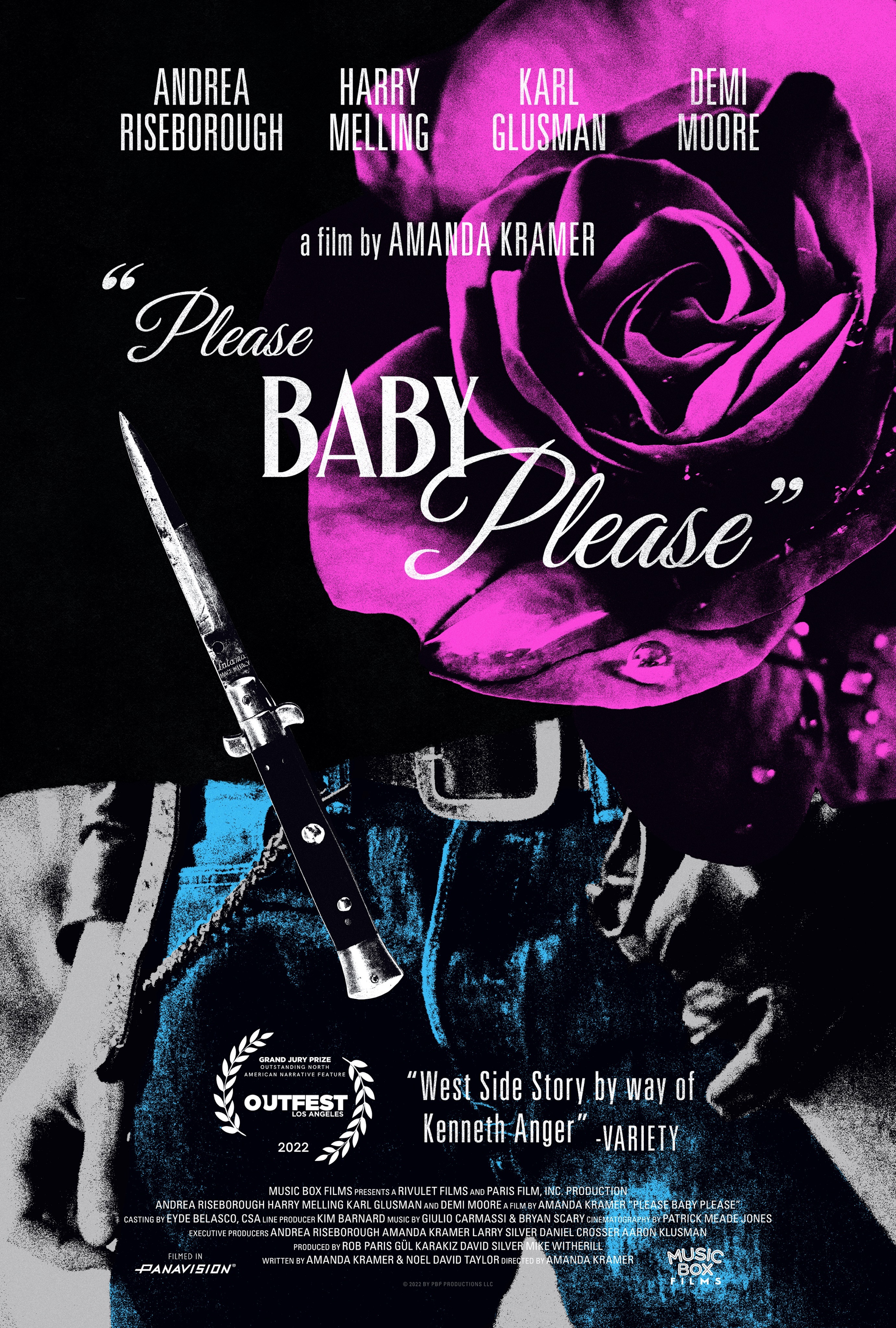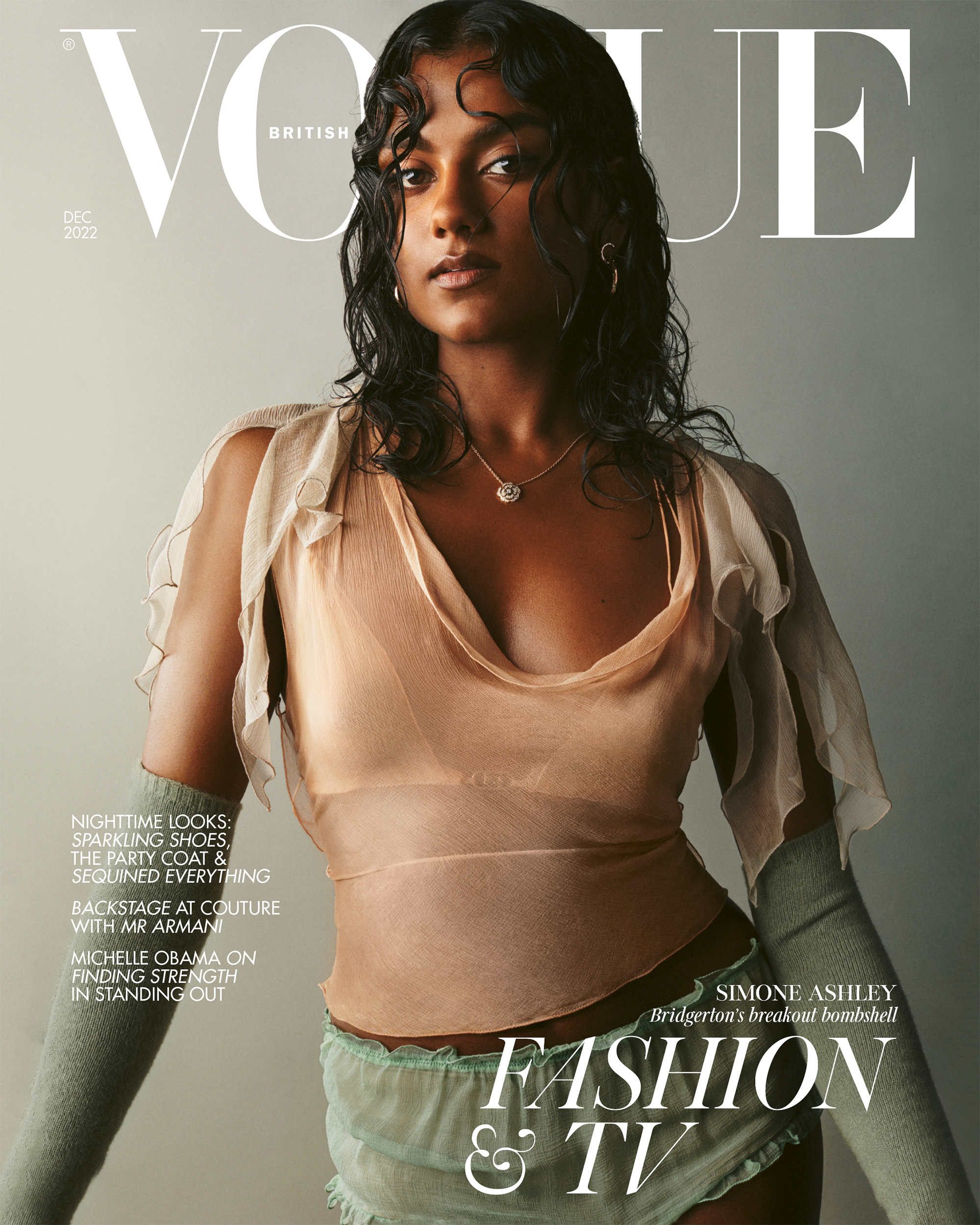Andrea Riseborough in Please Baby Please



Some films are so fascinating, authorial, and/or bold they defy the “good/bad” binary. Robert Eggers’ The Lighthouse is one such film—is it good? Is it bad? Does it matter, when it’s so INTERESTING? The works of John Waters, Harmony Korine, and Prince fall into this category, too. As does Amanda Kramer’s latest film, Please Baby Please.
It’s a deliberately camp provocation, a surrealist fantasy that is as if John Waters directed a very horny, openly gay West Side Story with very little actual singing and dance numbers best described as “choreographed writhing”. I don’t know if I like this film, let alone consider it “good”, but it doesn’t really matter when Kramer presents her ideas with such clarity and decisive direction. Also, Andrea Riseborough gives a gangbusters performance as a housewife in the throes of a sexual awakening that is worth a watch.
Set in 1950s New York, Please Baby Please shamelessly cribs from mid-century musical style but makes it over in a DIY paper craft aesthetic and vivid bisexual lighting. (The craft feel of the sets recalls Albert Birney and Kentucker Audley’s similarly surreal sci-fi fever dream, Strawberry Mansion.) Arthur (Harry Melling) and Suze (Riseborough) are newlyweds living a Bohemian life in Lower Manhattan when they witness a murder outside their apartment building, committed by a neighborhood street gang captained by the sultry Teddy (Karl Glusman). Arthur, with his turtlenecks and mad hair, is immediately taken with Teddy, while Suze is awakened to a more visceral way of living after witnessing the violence. Restless and bored by playing housewife, Suze looks for new experiences while Arthur follows Teddy into nightclub bathrooms.
Baby is thematically concerned with traditional gender roles in a way that recalls Anna Biller’s The Love Witch, which also relies on retro styling and hyper-stylized gender expression to visually communicate themes. But Baby is not as elegant as The Love Witch, Kramer’s characters are prone to long monologues explicitly stating, even repeating, themes. Where Kramer shows a defter touch is in her dialogue-free scenes, or in the rare bout of song. Cole Escola plays several roles throughout the film, presenting alternately as hyper-femme, androgynous, and masculine, and in one scene, they sing a sad song that better captures the limits of traditional femininity than any of the unambiguous monologues. Similarly, Riseborough performs a couple of “dance” numbers, one dressed in a highly fetishized feminine outfit, the other in a gender-bending masculine one, both are outrageously sexy and capture the full range of Suze’s sexual expression and appeal.
Arthur, meanwhile, frets about not wanting to be a man. He has never felt masculine, and desires none of the competition that comes with traditional masculinity, but neither does he view himself as a woman. “You’re a queer,” one character intones, slotting Arthur into a sexualized role that still falls short of his gender expression. Baby plays with fluidity in various forms, and Kramer astutely casts a bevy of LGBTQ+ actors to play characters that range from hyper-femme to butch to aggressively, traditionally masculine. Teddy, styled like Marlon Brando in The Wild One, is the classic “alpha male”, but he’s so sexualized by Kramer’s lens it’s borderline funny. Teddy occupies the role usually reserved for The Sexpot stereotype, he is a universal object of lust for everyone, most especially the camera.
Baby is so theatrical, so deliberately over the top, it won’t work for everyone. The weird dance numbers, the barely-there musical numbers, the touch of soft-core prurience, the staginess, the purposeful fakery of the sets, and those clunky monologues will turn some people off. But being “good” doesn’t really matter when a film is as interesting as this is. Please Baby Please is full of ideas, some executed better than others, but all presented with total commitment to the premise. Amanda Kramer, Andrea Riseborough, et al really go for it, and the result is one of the most unique films I’ve seen this year. And it is playful in a way that makes up for some of its faults. Following one of those unwieldly monologues with a bonkers dance number, for instance, whiplashes you from eye-rolling to wide-eyed amusement in a flash. Is Please Baby Please good? I don’t know. But it’s certainly memorable.

